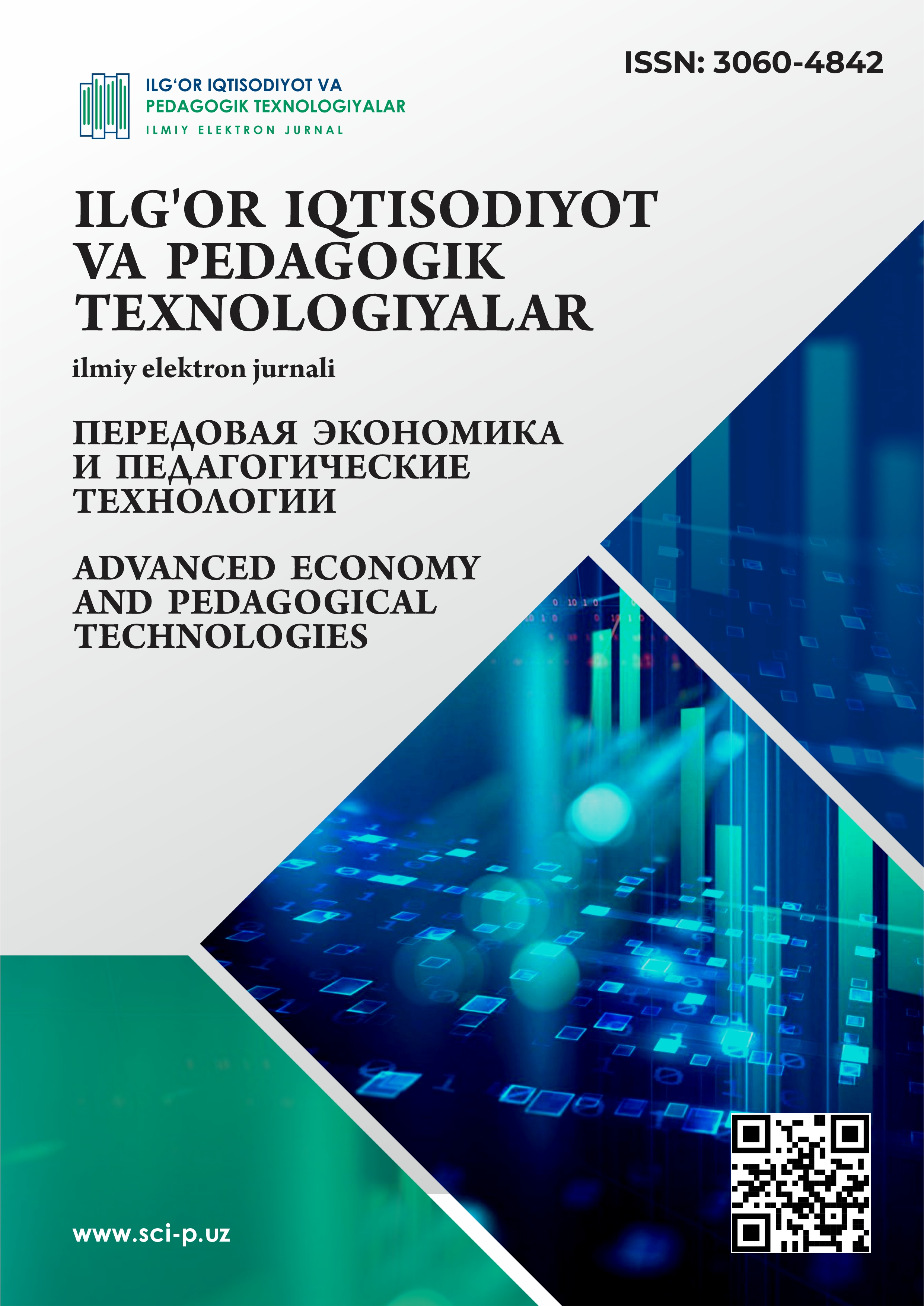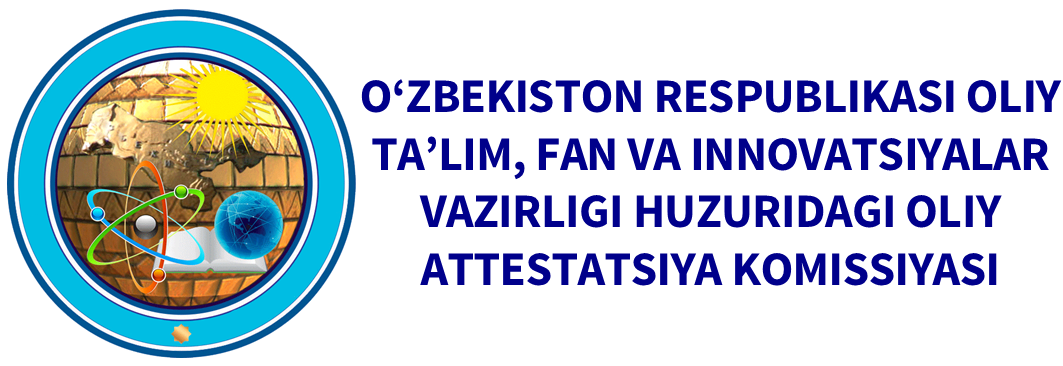Ilgʻor iqtisodiyot va pedagogik texnologiyalar

“Ilgʻor iqtisodiyot va pedagogik texnologiyalar” ilmiy elektron jurnali iqtisodiyot va pedagogika yoʻnalishdagi maqolalar va axborotlarni chop etishga ixtisoslashgan.
Jurnal O‘zbekiston Respublikasi Oliy attestatsiya komissiyasi Rayosatining 2024-yil 31-iyuldagi 363/5-son qarori bilan iqtisodiyot va pedagogika sohalarida "Dissertatsiyalar asosiy ilmiy natijalarini chop etish tavsiya etilgan ilmiy nashrlar ro‘yxati”ga kiritilgan.
Jurnal oʻzbek, rus va ingliz tillarida, 2 oyda bir marotaba chiqariladigan nashrdir.
e-ISSN: 3060-4842 Batafsil...
Joriy nashr
Jild 3 № 1 (2026): Ilg'or iqtisodiyot va pedagogik texnologiyalar
Nashr qilingan:
01/13/2026






